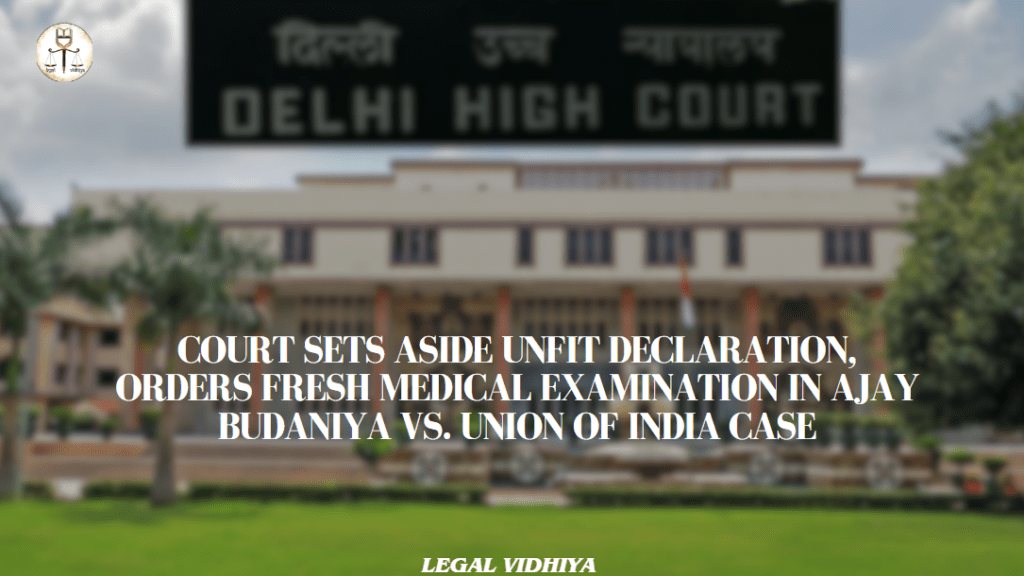
The Delhi High Court in the case of Maksood Ahmad v State of NCT of Delhi & Anr has ruled that an individual who undergoes religious conversion for the purpose of marrying someone from a different faith must submit an affidavit declaring their understanding of the ramifications and implications of the new religion, particularly in terms of divorce, custody, succession, and religious rights.
Furthermore, the Delhi High Court issued a series of guidelines to be adhered to in cases involving religious conversion. Justice Swarana Kanta Sharma noted that explaining the detailed understanding of the religious aspects and their consequences would help individuals understand the possible changes in their legal status after converting.
“Conversion to another religion which is uninformed may not prepare a convert with the consequences that they will now not be able to follow their form of religion in case the religion they are converting to, does not permit so. This becomes more critical in case their reverting back to their religion may ensue legal, matrimonial, succession and custody related consequences. This court is only concerned with such situations. These situations may arise by conversion to any religion whatsoever,” said Justice Swarana Kanta Sharma.
In its decision, the Court mentioned that a certificate should be attached to the conversion certificate, confirming that the person who converted has been informed about the beliefs, customs, and expectations involved in changing religions. This document should also acknowledge the possible outcomes and effects regarding marriage dissolution, inheritance, child custody, and religious privileges.
It was also stated that along with the conversion certificate, an affidavit should be provided, including details about age, marital history, and current marital status, along with supporting evidence. The affidavit must explicitly state that the conversion is a voluntary decision made after fully comprehending the potential outcomes and consequences related to marital divorce, succession, custody, religious rights, and so on. The Court additionally clarified that these guidelines will not be applicable to marriages conducted under the Special Marriage Act, 1954.
The following guidelines has been laid down by the court:
1. following guidelines are laid down by this Court: The following affidavits must be obtained at the time of inter-faith marriage after conversion by the concerned persons/authorities, except in cases of marriages performed under Special Marriage Act, 1954:
(a) Affidavit regarding the Age, marital history and marital status and evidence thereof of both the parties.
(b)Affidavit that the conversion is being undergone voluntarily after understanding the implications and consequences related to marital divorce, succession, custody and religious rights, etc.
2. A certificate must be appended to the conversion certificate that the convert has been explained the tenets, rituals and expectations inherent in religious conversion as well as implications and consequences related to marital divorce, succession, custody and religious rights etc.
3. The certificate of conversion and marriage should also be in additional vernacular language understood by the prospective convert in proof of the fact that he or she has understood the same. The same be in Hindi also where the language spoken and understood by the prospective convert is Hindi, in addition to any other language preferred to be used by such authority. Where the language spoken and understood by the prospective convert is other than Hindi, the said language can be used.
Furthermore the court stated that, “These guidelines are for ensuring well-informed decision on the part of the naive, uneducated, susceptible, adolescent couples who may enter into such unions after conversions, without fully comprehending the profound implications of such a conversion, impact of which extends far beyond the immediate union, encompassing a myriad of consequences on their personal laws and various facets of life, as have been highlighted in the preceding paragraphs.”
Background
The Court issued these directives while rejecting the plea to dismiss the First Information Report (FIR) lodged against an individual under Section 376 (rape) and 506 (criminal intimidation) of the Indian Penal Code (IPC), even though the complainant and the accused had married subsequently.
According to the complaint, the woman accused Maksood Ahmad of rape on September 24, 2022, and the FIR was officially filed on October 18, 2022. On the same day, the woman converted to Islam and married Ahmad. However, Ahmad was apprehended on November 18, 2022.
Despite the woman’s claim that she was divorced from her first husband during her marriage to Ahmad, the Court found no supporting documentation. Additionally, Ahmad was already married at the time.
During the High Court hearing on quashing the FIR, it was asserted that the accused and the complainant were not legally married and sought the FIR’s dismissal since the couple, along with the woman’s two children from her previous marriage, were living together.
The woman expressed no objection to quashing the FIR. However, after evaluating the case, Justice Sharma highlighted that at the time of their marriage, the complainant was not divorced from her first husband, making her ineligible for remarriage.
The Court emphasized that the subsequent marriage between the complainant and the accused should not automatically result in the FIR’s dismissal in cases registered under Section 376 of the IPC, as it cannot be assumed as a matter of right.
Case Name- Maksood Ahmad v State of NCT of Delhi & Anr
Anshra Zafar, a B.A.LLB (Hons) student at IILM University, Greater Noida, 4th Semester. An intern under Legal Vidhiya.
Disclaimer: The materials provided herein are intended solely for informational purposes. Accessing or using the site or the materials does not establish an attorney-client relationship. The information presented on this site is not to be construed as legal or professional advice, and it should not be relied upon for such purposes or used as a substitute for advice from a licensed attorney in your state. Additionally, the viewpoint presented by the author is of a personal nature.




0 Comments